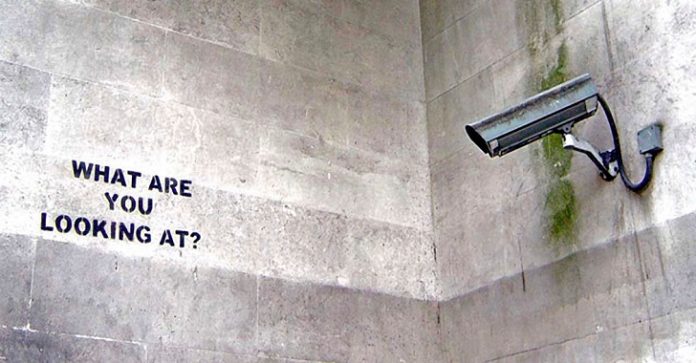
By Chris “Kikila” Perrin at undergroundreporter.org
Montreal, Canada — In what can only be described as a case that defies the idea of freedom of the press, CTV News reported this week that the Sureté du Quebec (SQ; the Quebec Provincial Police) has been tapping the phones of reporters. That they were doing so in an effort to uncover which officers have been leaking information, however, indicates that this surveillance greatly undermines the bounds of civil liberties.
Problematically, this is not the first time police in the province of Quebec have been caught spying on the press — it is only the first time that the provincial police have been implicated.
Earlier in 2016, a new report found that the SPVM (or Montreal Police) were spying on and surveilling a reporter forLa Presse. This, they reasoned, was in an effort to uncover which one of their fellow officers was passing information to the press. Moreover, the practice seems long-standing with Montreal police as a similar program, with similar motives, was ongoing as early as 2014. Since then, the undermining of the free press has become broader in scope.
With the discovery this week that the SQ are also guilty of tapping the phones of reporters in an effort to uncover their sources for police corruption, it appears that the practice is now province-wide. Perhaps more troubling than this spread from police force to police force is the systemic disregard for civil liberties that this case highlights.
According to the Canadian Criminal Code, police must obtain a warrant to conduct electronic surveillance of this nature. That both the SPVM and the SQ had obtained these warrants is indicative of a broader issue as it directly implicates the criminal judiciary as a whole.
Noam Chomsky and Edward Herman, in their book Manufacturing Consent, explain that a functioning, open democracy is dependent on a free press. One of the deep implications of this case is the apathy of the criminal court, and a police force that is swiftly being militarized, for the freedoms that ensure a democratic society. It is in this regard that even Edward Snowden has weighed in on the issue, pointing out how any slip in freedoms tends to turn quickly into an avalanche.
Despite the federal government promising that more broadly-reaching law enforcement agencies in Canada are not currently spying on the press, the guarantee is hardly comforting.
Logically, if the police in one province, at multiple levels of jurisdiction, have been able to convince judges to grant warrants that undermine freedom of the press and freedom of speech, not to mention Canadian whistleblower protection laws, then what actual guarantee is meaningful? According to CitizenFour and others, promises are simply falling flat.
This article (Police Caught Spying on Journalists to Uncover Source of Leaks) is free and open source. You have permission to republish this article under a Creative Commons license with attribution to Chris “Kikila” Perrinand UndergroundReporter.org.




